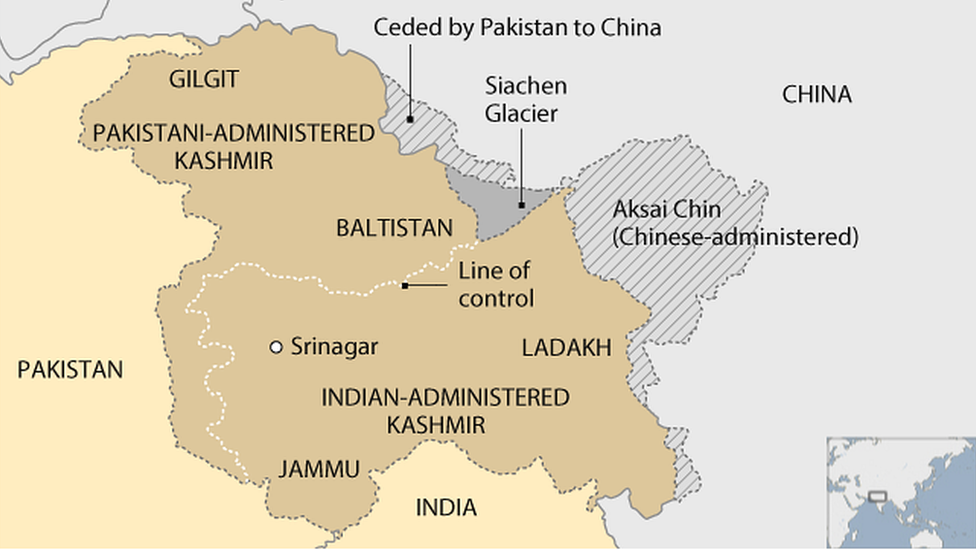Viewpoint: How India's response to Pakistan weakens Sharif
- Published
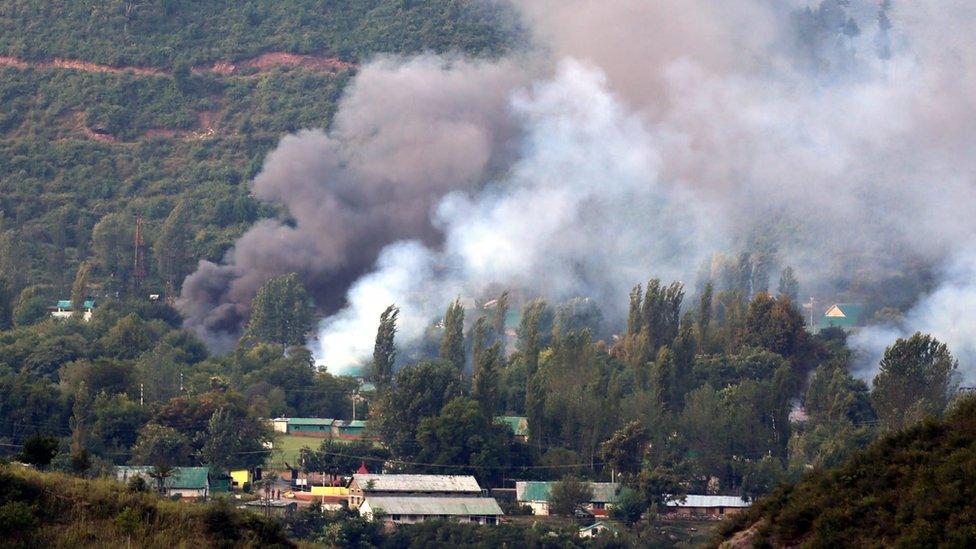
Relations have been especially tense since the deadly attack on the Indian army base in Uri
As Delhi explores its options to respond to the attack in Uri, which killed 19 soldiers in one of the worst terror attacks in Kashmir in recent years, the Modi government seems to be making a strong case for strategic restraint.
Amidst growing demands, especially from his ruling BJP party's rank-and-file, for strong action against Pakistan - who India blames for the attack - the Indian prime minister managed to turn attention from incessant warmongering towards long-term challenges facing the region.
Pakistan has strongly denied involvement in the Uri attack.
In his speech to his party cadres, Mr Modi challenged ordinary Pakistani's to a race on development as opposed to one on military engagement.
"I want to tell the people of Pakistan, India is ready to fight you. If you have the strength, come forward to fight against poverty. Let's see who wins. Let's see who is able to defeat poverty and illiteracy first, Pakistan or India," he said.
What's behind Kashmir's deadliest militant raid in years?
Why India needs cool heads after Kashmir attack
Indian army’s anger over Kashmir killings
Days after India lampooned Pakistan as the "Ivy League" of training centres for terrorists, Indian External Affairs Minister Sushma Swaraj used her speech to the UN General Assembly on Monday night to deliver a stinging rebuttal to Pakistani President Nawaz Sharif.
"Let me state unequivocally that Jammu and Kashmir is an integral part of India and will always remain so. My firm advice to Pakistan is stop dreaming about Kashmir," Ms Swaraj said.
Nawaz Sharif, in his earlier address, had paid tribute to Burhan Wani, the separatist militant whose killing triggered the current wave of violence in Kashmir.
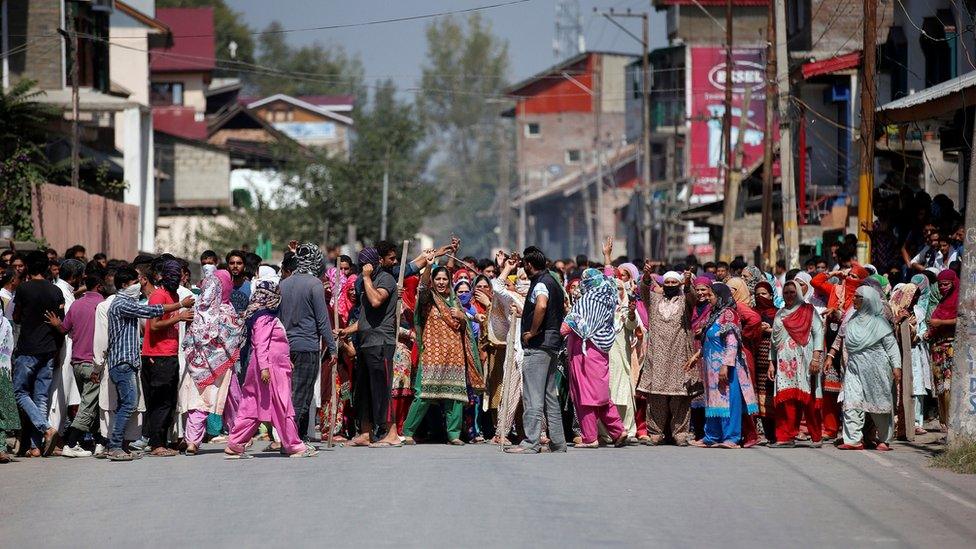
The killing of Hizbul Mujahideen Burhan Wani by Indian security forces prompted protests across Kashmir
Rights counter-narrative
Mr Sharif had talked of the excessive use of force by Indian security forces after protests linked to the death of Wani, only to be reminded by Ms Swaraj that "Pakistan would do well to introspect and see what egregious abuses they are perpetrating in their own country".
She was referring to the Pakistani province Balochistan, where Pakistani security forces have suppressed local dissent.
It is possibly the first time India has raised the Baloch issue at the UN forum, underscoring the Modi government's game-plan of going on the offensive to shape counter-narratives about human rights.
It is a terrain India had long ceded to Pakistan but Delhi is now signalling that it won't be playing by the old rules.
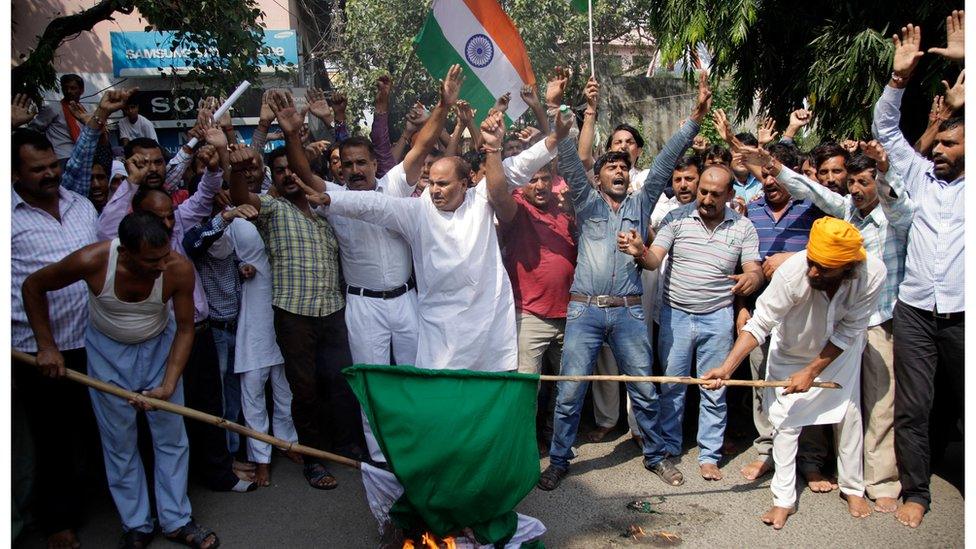
The Uri attack enraged many in India, where most believe it had Pakistan's support
Taking India's campaign to internationally isolate Pakistan even further, Sushma Swaraj said that "in our midst, there are nations that still speak the language of terrorism, that nurture it, peddle it, and export it. To shelter terrorists has become their calling card. We must identify these nations and hold them to account."
She linked Pakistan's activities in Kashmir with the latest bombing in New York, whose perpetrator is reported to have "studied" at a Pakistani Islamic school, or madrassa.
But very much like Mr Modi, she also was statesmanlike in her articulation, suggesting that India has "tried to talk to Pakistan as friends to resolve issues" and has "extended hands of friendship in the last two years" only to be rewarded with terrorism in return.
Referring to repeated attempts by India to reach out to Pakistan, Ms Swaraj said India had attempted a paradigm of friendship without any precedent.
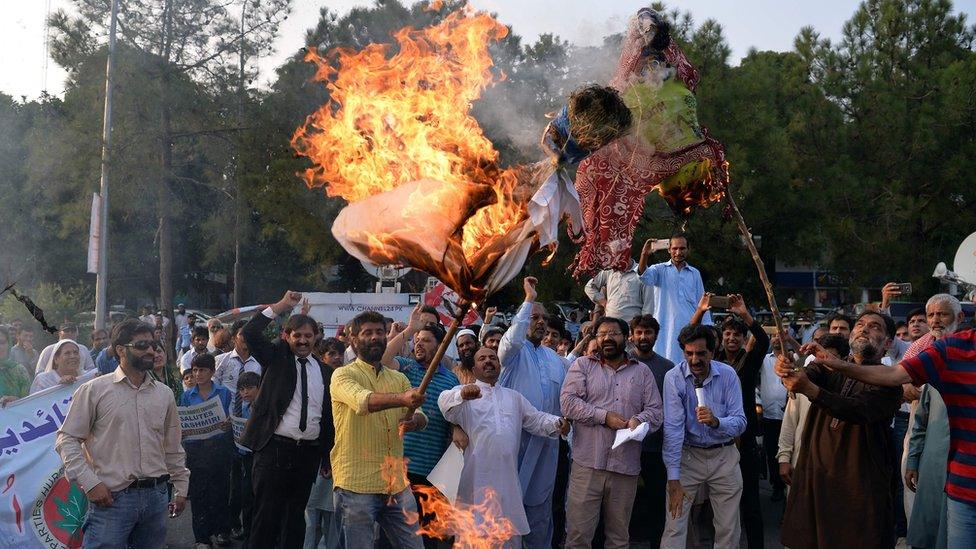
With relations at a low, Pakistani Kashmiris burn an effigy of Narendra Modi in Islamabad
With these speeches, the Modi government is reaching out to multiple audiences.
In India to those who are baying for blood and Indian policy-makers cautioning that direct military confrontation may not resolve underlying problems. In Pakistan, to ordinary Pakistanis, to do some soul-searching as to why India has managed to move so far ahead while their country seems stuck in a time-warp.
To the outside world, Delhi's message is categorical that India has a leadership which is capable of looking at the larger strategic picture and managing Pakistan's capacity for nuisance on its own terms.
Like its predecessors, the Modi government may have recognised that there are few good military options against Pakistan.
But it is different in terms of its success in altering the terms of engagement with Pakistan. As Nawaz Sharif's failed UN outreach exemplifies, Pakistan's global isolation on Kashmir is almost complete.
Moreover, with his UN diatribe Mr Sharif has come across as a weak leader who can be effectively handled by a junior Indian diplomat at the UN.
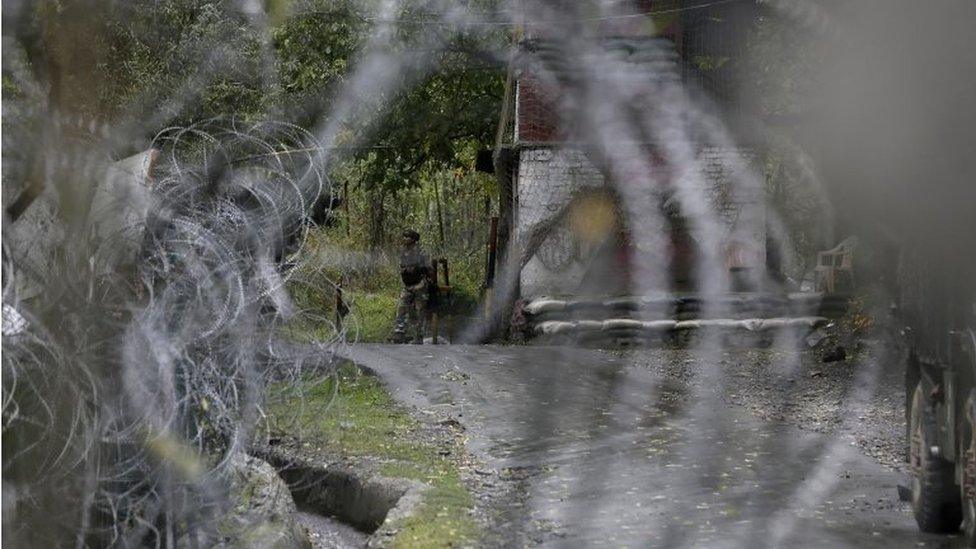
There is tight security near the Line of Control, the disputed de facto border in Kashmir
Focus on the future
Mr Modi is nothing if not a risk-taker. He took risks in reaching out to Nawaz Sharif early on in his term and now he seems to be taking a risk in bringing some costs to bear on Pakistan for its misadventures in Kashmir.
Mr Modi's own speech last week and Ms Swaraj's response to Nawaz Sharif at the UN reflects a sound understanding of not only the challenges facing India's Pakistan policy but also the opportunities that have emerged in recent years as a result of India's rising global stature.
Pakistan will clearly continue to be a nuisance in the near future but Mr Modi's India is gearing up for a larger stage and bigger stakes.
Harsh V Pant is a Distinguished Fellow and Head of Strategic Studies at Observer Research Foundation, New Delhi, and Professor of International Relations at King's College London.
- Published22 September 2016
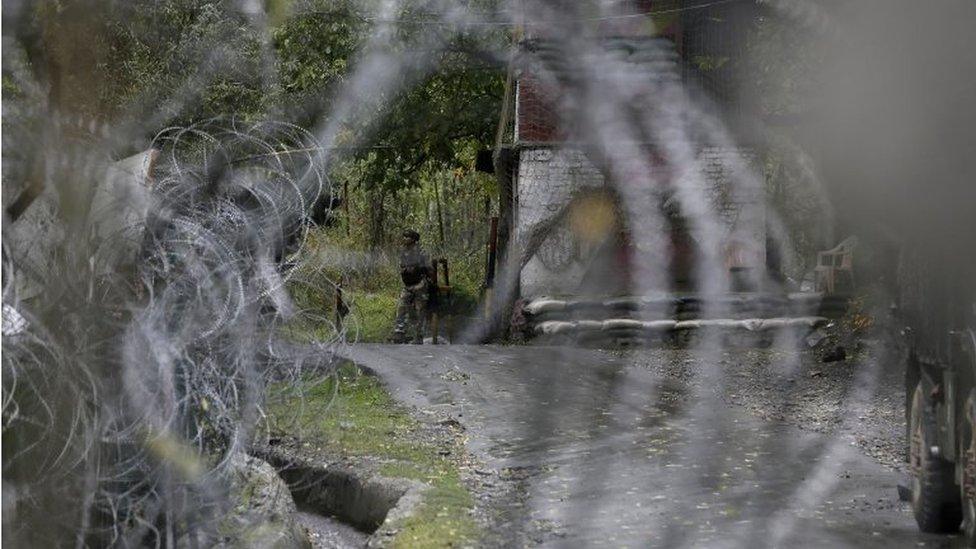
- Published20 September 2016
- Published19 September 2016
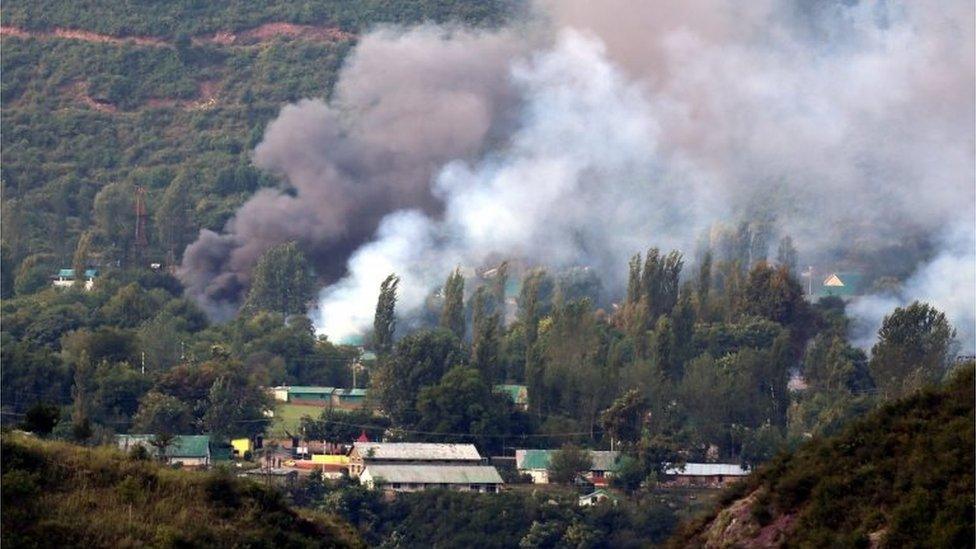
- Published19 September 2016
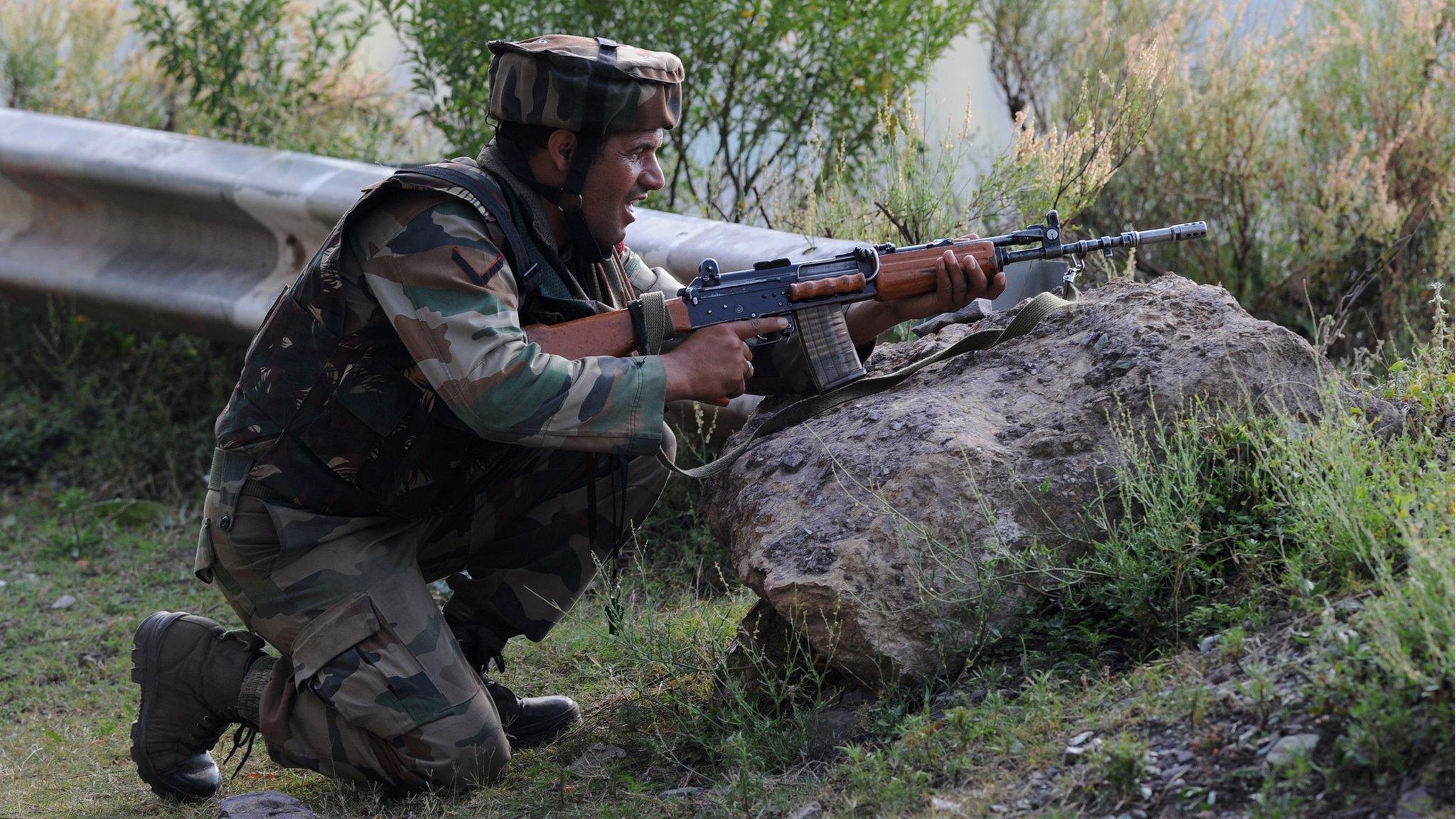
- Published26 September 2016
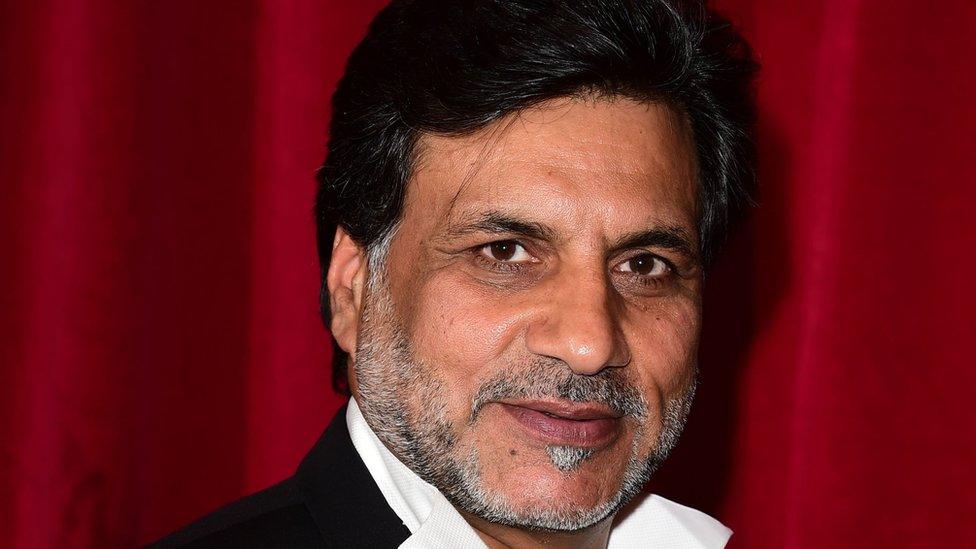
- Published10 March
